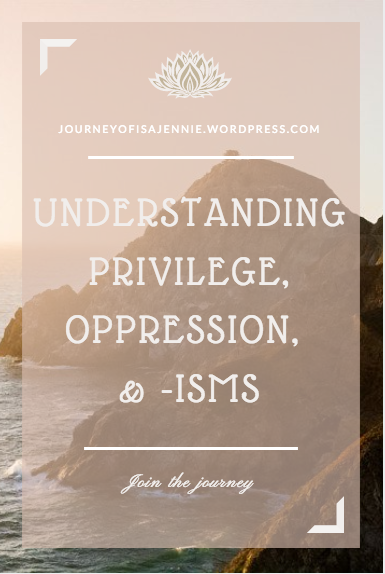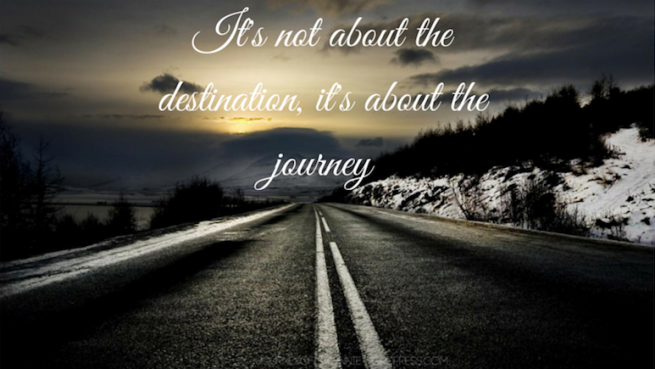Person 1: “You have privilege.”
Person 2: “What do you mean I have privilege? I’m not rich! I’ve gotten everything I have because I work hard. Nothing was ever handed to me!”
 Understanding Privilege
Understanding Privilege
This brief dialogue is often the reaction someone has when they’re first confronted with the social justice idea of privilege. Person 2 is thinking of privilege as it relates to wealth; however, when people involved in social justice work or marginalized communities refer to privilege, they’re referring to a systematic social advantage that is only available to certain groups that society deems worthy.
Admitting that you have privilege isn’t denying any hard work that you’ve had to do to accomplish what you have, it’s simply admitting that, through no fault of your own, society values some aspect or identity that you possess that you have no control over and this has given you certain advantages over others without this privilege.
It can be difficult to accept that you have privilege when you also experience oppression.
Understanding Oppression
Oppression is the counterpoint to privilege. In a phrase, it is the institutionalized unjust treatment of people based on their membership within a social identity group that is upheld by various systems within society.
There is a tendency in the colonized United States and other western countries to downplay the pervasiveness and seriousness of oppression within the West. Within colonized U.S., I believe this this has to with the values that USians claim to hold dear. It is very difficult to reconcile the amount of oppression many USians face with our values of freedom, equality, and justice for all. Despite this difficulty; however, oppression does exist and it needs to be taken seriously and confronted.
We need to remember, too, that oppression is not a competition. Too often I hear people say that women in the colonized U.S. aren’t oppressed because women in the Middle East have it worse. I don’t believe in playing Oppression Olympics. There is no prize for being The Most Oppressed and it helps no one to compare our struggles, instead, everyone loses. Oppression exists everywhere and it needs to be addressed and rooted out.
In my opinion, it is best to focus on the oppression we can most directly influence and then signal boost or amplify the struggles of those with oppressions we don’t experience so that we don’t speak over them.
Understanding the Systematic Nature of Privilege & Oppression
Individuals are affected by privilege and oppression but it’s crucial to remember that privilege and oppression are bigger than the individual. When we discuss privilege, oppression, and “-isms” we need to keep in mind that they are systemic, which means that they have been built into our society and society uses institutions to continue their existence.
When I discuss racism, I don’t use the dictionary definition of racism, which has been whitewashed and sanitized, but instead the social justice definition. When we use the dictionary definition, we are erasing the long and brutal history it has and decentering the people who actually truly experience racism. White people love to claim that we experience racism because on occasion we may be called “cracker” or once a person of color didn’t want to be our friend. Racism is so much deeper than this and it’s not just about individual experiences. The deliberate genocide and enslavement of Brown and Black bodies by our society is racism. The levels of police brutality experienced by Black and Brown bodies is racism. Being called a honky is not.
But please don’t take my word for it, I’m white and I’ve never experienced racism so please check out Racism School Tumblr and this amazing Ted Talk The Power of Privilege.
Understanding Axes of Privilege & Oppression
Privilege and oppression come in many different forms that exist on an intersecting continuum. At one end there is privilege and at the other end, oppression. Most of us don’t have all privileged identities (but it’s possible), instead we have a combination of privileged and oppressed identities.
Axes of privilege/oppression/isms include but are not limited to:
- hearing\d|Deaf|hard of hearing\audism
- cisgender/transgender/cissexism
- binary gender or sex/nonbinary gender or sex/binarism
- men/women/sexism or androcentrism
- white/people of color/racism
- settler/indigenous people/settler colonialism
- European heritage/Non-European origin/Eurocentrism
- heterosexual/lesbian|gay|bisexual|queer|questioning|asexual|pansexual|polysexual+\heterosexism
- abled (non-Disabled)\Disabled\ableism
- neurotypical/neuroatypical/anti-neuroatypical bias (anti-Autistic bias is a subtype)
- credentialed/nonliterate or noncredentialed/educationalism or credentialism
- middle-aged/old or young/ageism
- attractive/unattractive/politics of appearance
- thin/fat/fatshaming
- upper and upper-middle class/working class, poor/classism
- Anglophones/Non-English speakers/Language bias
- Light,pale/Dark/Colorism
- Gentile, non-Jew/ Jews/anti-Semitism
- Non-Muslim/Muslim/anti-Muslim bias
- non-sex worker/sex worker/anti-sex worker bias

Understanding Your Privilege and Oppression
Often those that have privilege on an axis are completely unaware of that privilege and and the advantages that have been afforded to them. Finding out you have privilege or being told to “check your privilege” can come as a shock and it can cause some people to react negatively: to lash out, to shut down, and to immediately deny what the other person is saying without taking the time to listen and process.
My advice? STOP! Take a deep breath. Clear your mind. Now try and understand where the other person is coming from and forget everything you thought you knew. Open your mind and try to listen and learn from the other person.
Evaluate yourself constantly. Check your privilege (make sure you’re not speaking out of turn or over the experiences of others). Here’s a great source for examining your privilege vs oppression: How Privileged Are You
Your privilege can help ease some of your oppression and your oppression can chip away at your oppression…it can keep you from feeling the full effects of your privileges.
I welcome respectful discussion and questions and if you found this post educational or interesting, I hope you’ll take the time to comment and share it on social media!
That’s all for now!
-IsaJennie


